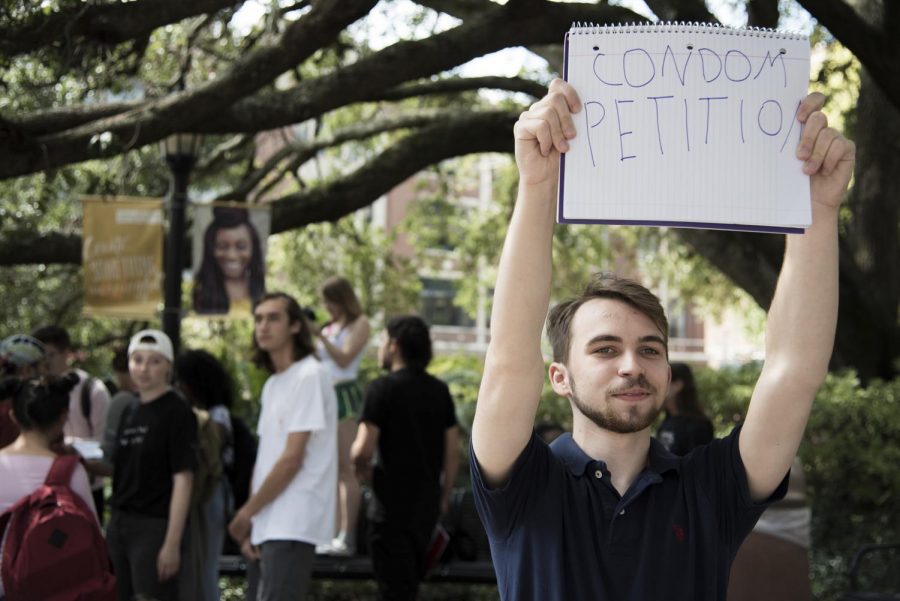Opinion: A case for sexual education at a Catholic institution.
Gabriel Lesser holding up a sign in support of a petition to get condoms on campus on Oct. 8. Lesser sponsored the Student Government Association resolution for sex education. Michael Bauer/The Maroon.
November 10, 2019
By Gabriel Lesser
With the recent signing of the Sexual Education Resolution in the SGA Senate, it’s important to acknowledge the crucial vulnerabilities and responsibilities of Louisiana that led to its creation.
Louisiana is the highest risk state in the nation to contracting an STI. It ranks 1st in syphilis transmission, 2nd for chlamydia, and 3rd for gonorrhea and HIV, according to the Centers for Disease Control. Additionally, the population most affected by STD transmissions are college students (specifically those between the ages of 15 and 24). While some of these diseases are curable, HIV has life-long consequences, especially for those who are uninsured or underinsured. It’s also important to acknowledge that even the curable diseases often require costly doctor visits that can put a strain on the wallets of college students.
In the Jesuit value of Cura Personalis, caring for the person’s needs are emphasized. This means respecting the health needs of all students. In the view of the Catholic church, taking care of our bodies is just as important as taking care of our souls and praying to the Lord. Saint Ignatius himself wrote a letter to a fellow priest urging him to take care of his body better: “For the next three months, from now until September, you are to do no preaching, but are to look after your health.”
It is undeniable that STDs are a threat to us. However, with the resources of the administration, I believe it is possible that we could tackle this issue to truly improve the health of students. Through sexual education and more affordable access to STD testing, students can truly fulfill our value of Cura Personalis and make Loyola University a better place. I think the Sexual Health Resolution embodies this need and makes it clear that we as students of Loyola need our voices to be heard on this issue. In the future, it’s my goal to put these words into action and start creating concrete actions to truly create a positive impact at Loyola for the better.








